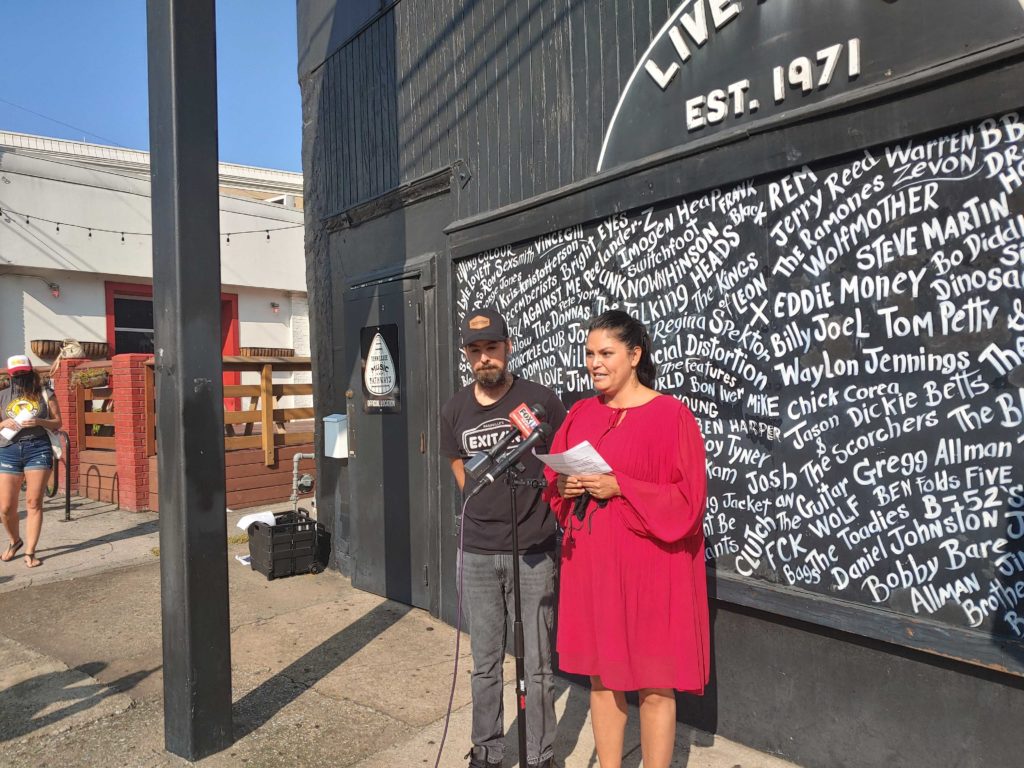
The pandemic has hit the music industry hard. That fact has been made obvious by the seemingly endless stream of cancellations for concerts, residencies, tours and festivals.
A new music industry report, released last week by the Nashville Chamber of Commerce and the digital rights company Exploration, shows just how much of an impact the pandemic has had. It also provides the first deep analysis of how this period has revealed deficiencies in the industry.
More: Download the report here.
Who lost the most?
Before the pandemic, the live music industry had accounted for half of all revenue. Now, that sector has been decimated. Independent venues that reported to the Nashville-based Music Venue Alliance say their revenue is down 72% this year. They also lost a lot of employees. Nearly three-quarters of music makers say they lost money due to COVID-19.
Jewly Hight, music director of WPLN’s sister station WNXP, says that’s not just counting musicians.
“It’s also the many, many other people who work behind the scenes and who support live event production, especially those who are freelance or sort of go gig to gig and have few employment protections in general.”
Have live-streamed concerts helped?
To supplement the lost income, some music makers have been live-streaming performances online instead. Indeed, the report finds it has been one of the top alternative sources for money. But not all genres have benefitted equally.
Punk, emo and hardcore bands have been the least likely to actually make money from their live-streaming events, whereas folk and Americana artists have had the most success. And concert-goers say it’s just not the same as seeing a show in-person.
How have listeners adapted?
While so much of the music industry has taken a hit, Hight says demand for music is up. Forty percent of fans say they’ve been listening to more music during the pandemic, and not just streaming services like Spotify and Apple Music.
“Vinyl is really selling,” Hight says, “It’s selling more than it’s been since the 1980s.”
However, because of how royalties are set up, that doesn’t always make up for the lost income for writers and performers.
How does Nashville compare to other cities?
The report maps the longterm growth of the music industry in Nashville. Hight says over the past decade, it’s been impressive, with more than 5% job growth. And while overall Nashville is still eclipsed by cities like New York and Los Angeles, Hight says, “We’re bigger in terms of … the actual density of music industry employment and how fast things are growing.”
On the flip side, Nashville trails the national average when it comes to the number of Black people and women involved in the industry.

